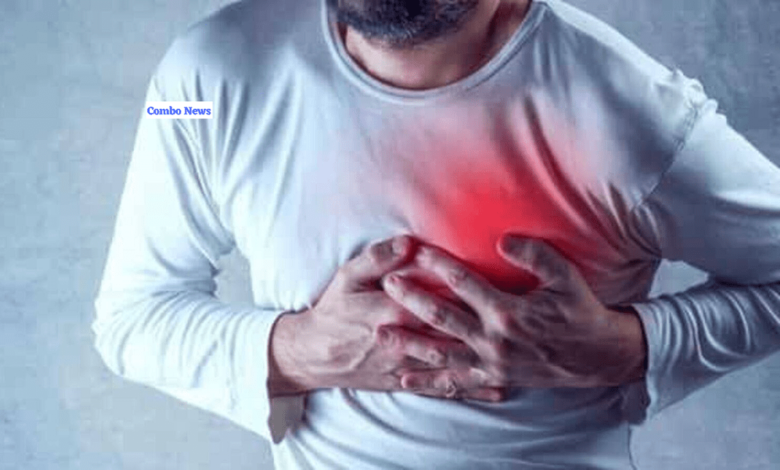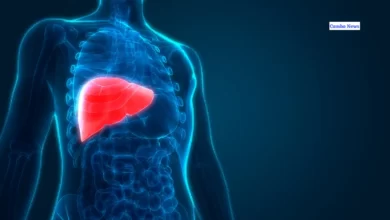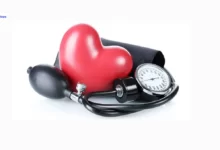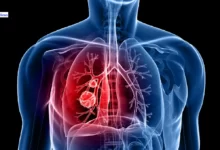Sudden Cardiac Arrest among Teens on Rise: Here’s What Experts Say You Can Do

After a hiatus of Sudden Cardiac Arrest, India announced this week that two teens had died from what seemed to be heart attacks. While playing at school in Greater Noida, a 15-year-old kid died from a heart attack, while a 16-year-old boy passed away in Telangana after suspected cardiac arrest.
Heart conditions have historically been recognized to affect the elderly, but recently, problems have also been rising in young people. While the trend of young fatalities from heart attacks is regrettable, physicians from many states told News18 that it’s critical for parents and educators to notice, prevent, and treat these unexpected incidents.
Teenagers who unexpectedly collapse after working out frequently make the news. Fortunately, these Sudden Cardiac Arrest crises don’t occur as frequently as they would appear, according to Dr. Maninder Singh Dhaliwal, a pediatrician at Amrita Hospital in Faridabad, who spoke to News18. Although uncommon, sudden cardiac arrests (SCA) in young persons do happen. When it does occur, if it is not treated within a few minutes, it frequently results in death.
When the heart stops beating or stops pumping insufficiently to sustain perfusion and survival, a sudden cardiac arrest ensues. Within an hour after the beginning of symptoms, a cardiovascular cause results in Sudden Cardiac Arrest death (SCD).
Dhaliwal said that less than three children out of every 100,000 experience pediatric sudden cardiac death. “And according to Western data, roughly 25 instances occur during vigorous activity and sports. In contrast, 135 individuals per 100,000 have sudden cardiac death.
Also Read: What is Teleradiology? Here Is Everything You Need to Know About It
Blame Covid?
According to experts, these occurrences have grown in number since the Covid pandemic’s breakout. Numerous studies from all around the world have proven that even a minor Covid-19 infection can be hazardous to cardiovascular health.
“We did see a rise in the number of cases of post-Covid myocarditis after the pandemic peaked, but could this be the cause of the increased risk of Sudden Cardiac Arrest death, I am not sure,” said Dr Sushil Azad, deputy head of the department of paediatric cardiology and adult congenital heart diseases at Amrita Hospital, Faridabad. “Another reason,” in particular for young individuals (above 25), “could be the increased incidence of coronary artery disease, especially with risk factors.”
The frequency of cardiac arrests has undoubtedly grown in the nation, according to Dr. Aparna Jaswal, director of cardiac pacing and electrophysiology at Fortis Escorts Heart Institute in New Delhi.
She noted that lifestyle illnesses were mostly to blame for the increase in young people. “We do realise that the Covid epidemic has had an effect on the body’s blood arteries, and that this effect may be responsible for the rise in heart attacks. The prevalence of coronary artery disease and issues has increased in the post-Covid era. We are now more prone to seeing more cases of these issues as a result of the coronavirus.
Also Read: Early-life influences are significant, according to a new study on lung health
‘No longer surprising’
It is referred to be a “worrying trend” by experts and must be addressed quickly.
Similar findings were made by Dr. Munna Das of the cardiology, adult and electrophysiological departments at the Narayana Multispeciality Hospital in Howrah.
In India, heart disease is now the primary source of disease burden and is responsible for a substantial portion of young people’s fatalities, the man stated.
According to Das, it is “no longer surprising” to see heart attack and emergency situations among people between the ages of 25 and 35.
Every month, three to four young people between the ages of 25 and 35 visit our emergency rooms. Although there are already cutting-edge therapies available, we firmly advocate for more cardiac screening in high schools, universities, and even among athletes. Risk factors, blood pressure, heart-related symptoms, family history, and stress-related problems should all be reviewed during screening, he said.
The trend is “concerning,” according to Dr. Anand Kumar Pandey, head of interventional cardiology at Dharamshila Narayana Superspeciality Hospital, and “coronary artery disease is the most common problem.”
Additionally, he added, “a severe condition observed among the young population is abnormal enlargement of cardiac muscle cells, leading to heart failure, irregular heart rhythms, angina, and increased heart attack risk.”
Along with other risk factors including a bad diet, obesity, and a lack of physical exercise, Pandey claimed that ignorance of a healthy lifestyle is a big contributor to this problem.
Also Read: Dental Care During Pregnancy, More Details Inside
Causes of sudden cardiac arrest among youngsters
According to the Centres for Disease Control and Prevention (CDC), over 2,000 young, otherwise healthy persons under the age of 25 pass away in the US every year from sudden cardiac arrest.
Though it can also happen to young individuals who aren’t active in organised sports, sudden cardiac arrest is regarded to be one of the main causes of mortality in young athletes. However, an individual’s age often affects the causes of cardiac arrest.
The majority of cardiac arrests in those over 35 are brought on by coronary artery disease, according to Azad from Amrita Hospitals, but in younger people, the reasons of cardiac arrest might vary.
“Hypertrophic cardiomyopathy” may be a contributing factor. The most frequent cardiovascular cause of sudden cardiac arrest in young individuals is generally hereditary and frequently goes undetected. “The muscle cells in the ventricles, the heart’s bottom chambers, thicken. Especially when exercising, this may result in an irregular cardiac rhythm.
Other causes might include “primary arrhythmias or abnormality of the electrical activity of the heart”.
Undiagnosed genetic disorders that disrupt the electrical impulses of the heart can occasionally cause sudden cardiac arrest in patients with physically normal hearts.
The third cause, which is often brought on by an infection that causes the heart’s walls to become inflamed, is myocarditis. The majority of paediatric myocarditis cases, according to Azad, are caused by viral infections.
Due to lifestyle factors including smoking, being overweight, using drugs, and having a family history of early coronary artery disease, coronary artery disease is not uncommon among young persons under the age of 35.
To be clear, not all children with heart problems have a greater chance of suffering a sudden cardiac arrest, according to Dhaliwal from Amrita Hospitals.
“Even if they do have an increased risk due to their diagnosis, many can still participate in exercise safely with appropriate restrictions and monitoring, as well as with permission from their doctors,” he noted.
Also Read: Here Are Some Amazing Tips To Ease Digestion, Read About Them Here
How can you prevent such events?
Experts advise knowing your family history since it may aid in anticipating and so preventing such occurrences.
Doctors strongly suggest increased cardiac screening in colleges and high schools. Additionally, they advise that risk factors, blood pressure, heart-related symptoms, family history, and stress-related problems be examined as part of the screening process.
Every school teacher, physical educator, gym instructor, or coach for school sports must have current basic life support training, or BLS training, according to Dhaliwal.
The use of an AED, an automated device that detects aberrant, life-threatening cardiac rhythms and, if required, administers an electrical shock to the heart to help it reestablish an effective rhythm, is advised by doctors for both instructors and physical trainers.
For any sport activity, obtaining a medical fitness certificate from a physician or paediatrician is crucial. Parents should tell their child’s doctor if their family has a history of early sudden cardiac death (before the age of 50), according to specialists.
FAQs
Why is cardiac arrest on the rise?
A recent study from the Smidt Heart Institute suggests that the rise in sudden cardiac arrest cases may have been both a direct result of COVID-19 infections and a collateral effect of the pandemic.
What is the solution for sudden cardiac arrest?
Sudden cardiac arrest must be treated and life-saving CPR administered right away. rhythmic heart rate restoration. Defibrillation is the term used for this. If an automated external defibrillator, or AED, is available, you can perform this using one of those devices.
Also Read: Here Is the List of Top Pharma Contract Manufacturing Companies in India








